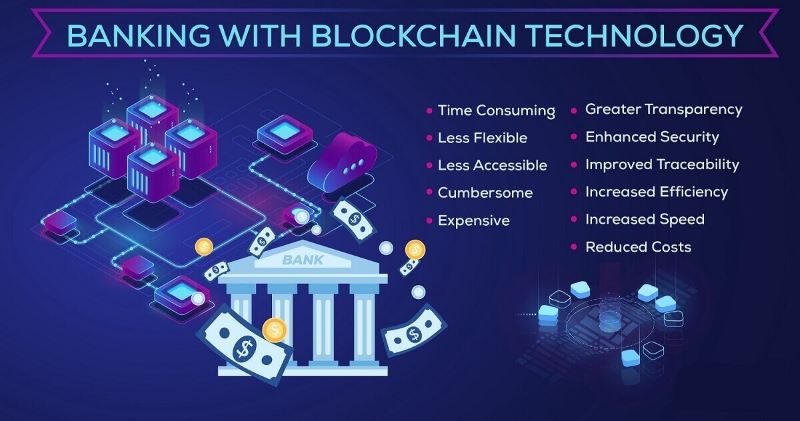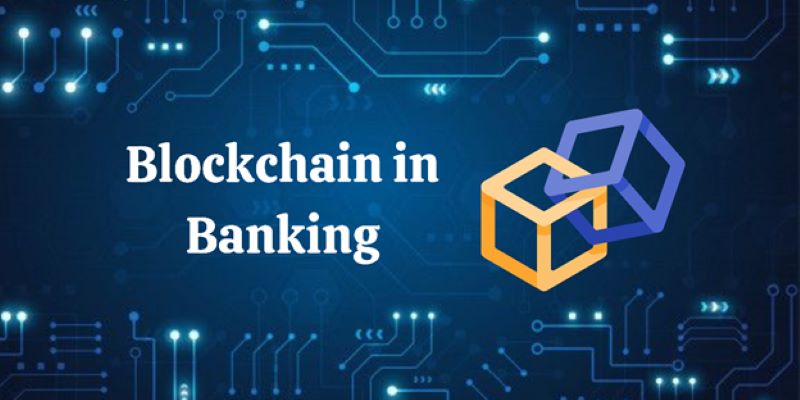Blockchain technology in banking is set to reshape the way we interact with financial services. Through increased efficiency, reduced costs, and enhanced security, blockchain offers a promising future for the banking industry.
Blockchain technology in banking for payments
Blockchain is becoming a core technology in the banking industry, especially in the field of payments. With its outstanding advantages in security, transparency, and efficiency, blockchain promises to revolutionize the way we conduct financial transactions.
Cross-border payments:
- Reduce costs: Eliminate intermediary fees and shorten processing time.
- Increase transparency: Track the entire transaction process.
Small-scale payments:
- Suitable for small-value transactions: Low transaction fees, suitable for daily transactions.
Cryptocurrency:
- Direct payments: Users can transfer cryptocurrency to each other quickly and securely.
Smart contracts:
- Automate contract terms: Contract terms are encoded on the blockchain and automatically executed when certain conditions are met.
Blockchain technology in banking for identity management
By leveraging the superior advantages of Blockchain technology in banking, it is possible to provide customers with safer, more secure, and more efficient services. Thereby, bringing a completely new way to verify and manage customers’ personal information.
Customer identification (KYC):
- Reduce time: The KYC verification process is automated, helping to reduce time and costs.
- Increase accuracy: Personal information is stored securely and accurately on the blockchain.
Fraud prevention:
- Early fraud detection: Fraudulent activities can be detected quickly thanks to the transparency of the blockchain.
- Multi-layer identity verification: Helps prevent identity theft.
Digital identity management:
- Create a unique digital identity: Each individual will have a unique digital identity on the blockchain.
- Integration with other services: Digital identity can be used to access other services such as payments, healthcare, etc.
Blockchain technology in banking for lending
Blockchain technology in banking is continuously improving with optimized techniques, promising to create a more fair, transparent, and accessible lending system for everyone. Specific applications include:
Peer-to-peer (P2P) lending:
- Direct connection: Lenders and borrowers can connect directly with each other through the blockchain platform.
- Automated risk assessment: Smart algorithms on the blockchain help objectively assess the borrower’s risk.
Decentralized credit:
- Creating new credit systems: Blockchain allows the creation of decentralized credit systems, independent of traditional financial institutions.
Asset tokenization:
- Increased liquidity: Assets such as real estate and automobiles can be tokenized and used as collateral for loans.
Blockchain technology in banking for securities
Transparency, efficiency, and fairness are the ways in which the securities industry operates. With blockchain technology in banking, these factors can be best ensured. Specific applications include:
Securities tokenization:
- Digital securities: Traditional securities like stocks and bonds are converted into digital tokens on the blockchain.
- Increased liquidity: Security tokens can be traded easily and quickly on decentralized exchanges.
Securities trading:
- Reduced settlement time: Transactions are processed almost instantly, minimizing settlement risk.
- Increased transparency: All transactions are recorded on the blockchain, increasing transparency and making it easy to track.
Asset management:
- Ownership tracking: Blockchain helps track ownership of assets accurately, reducing the risk of disputes.
- Automated dividend distribution: Dividends are automatically distributed to shareholders accurately and quickly.
Blockchain technology in banking for asset management
Blockchain technology is ushering in a new era for asset management. With its superior advantages in transparency, efficiency, and security, blockchain promises to revolutionize the way we manage and transact assets in the future.
- Portfolio management: Helps investors track their portfolios easily and transparently.
- Real estate management: Tracks ownership and automates real estate transactions.
- Digital asset management: Securely stores and manages digital assets such as cryptocurrencies and NFTs.
Blockchain technology in banking is undoubtedly the future of finance. Its ability to streamline processes, reduce costs, and enhance security makes it an attractive proposition for banks and customers alike. As the technology matures, Blockchainglobalnetwork believes we can expect to see a significant shift towards decentralized and more transparent financial systems.





